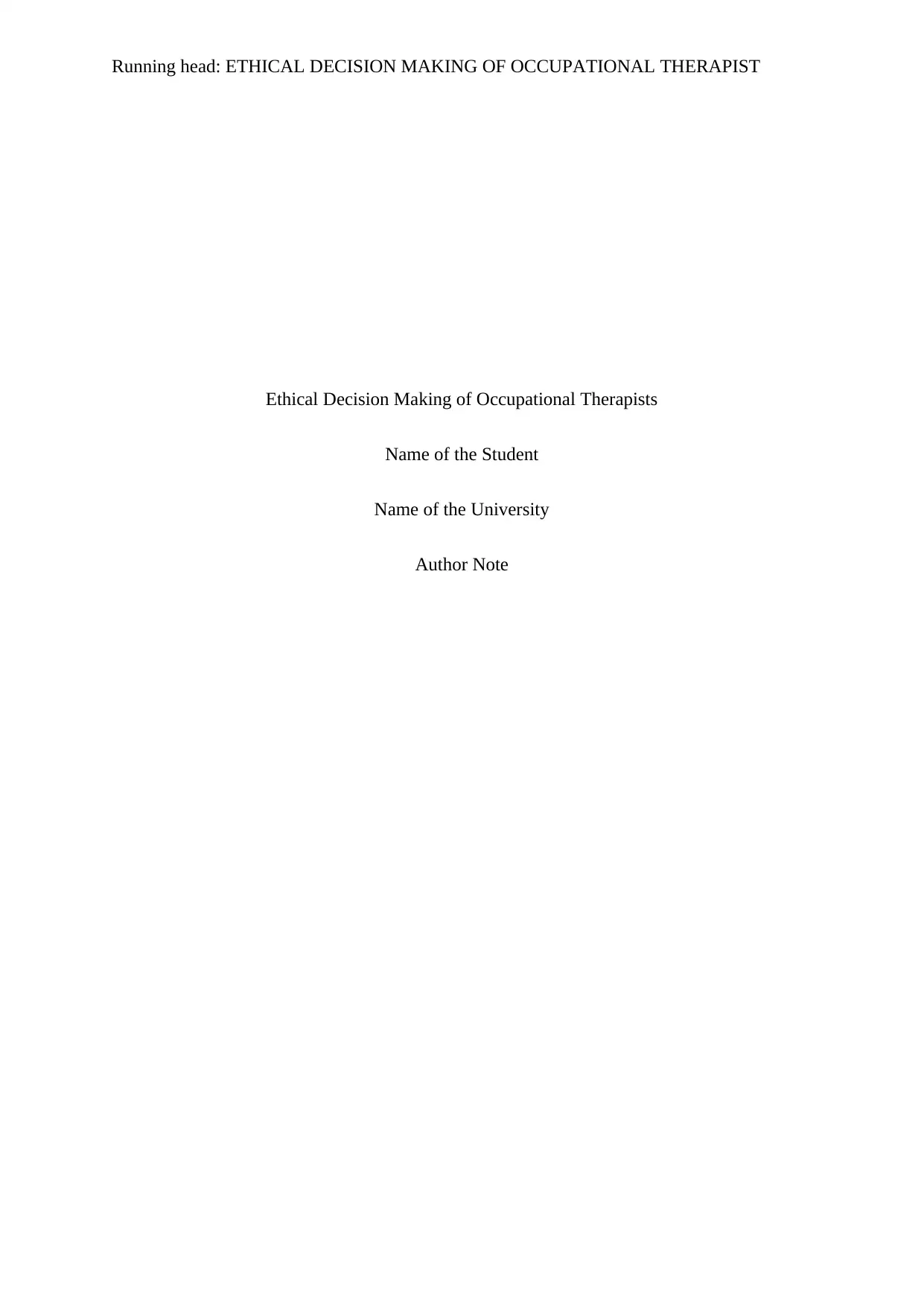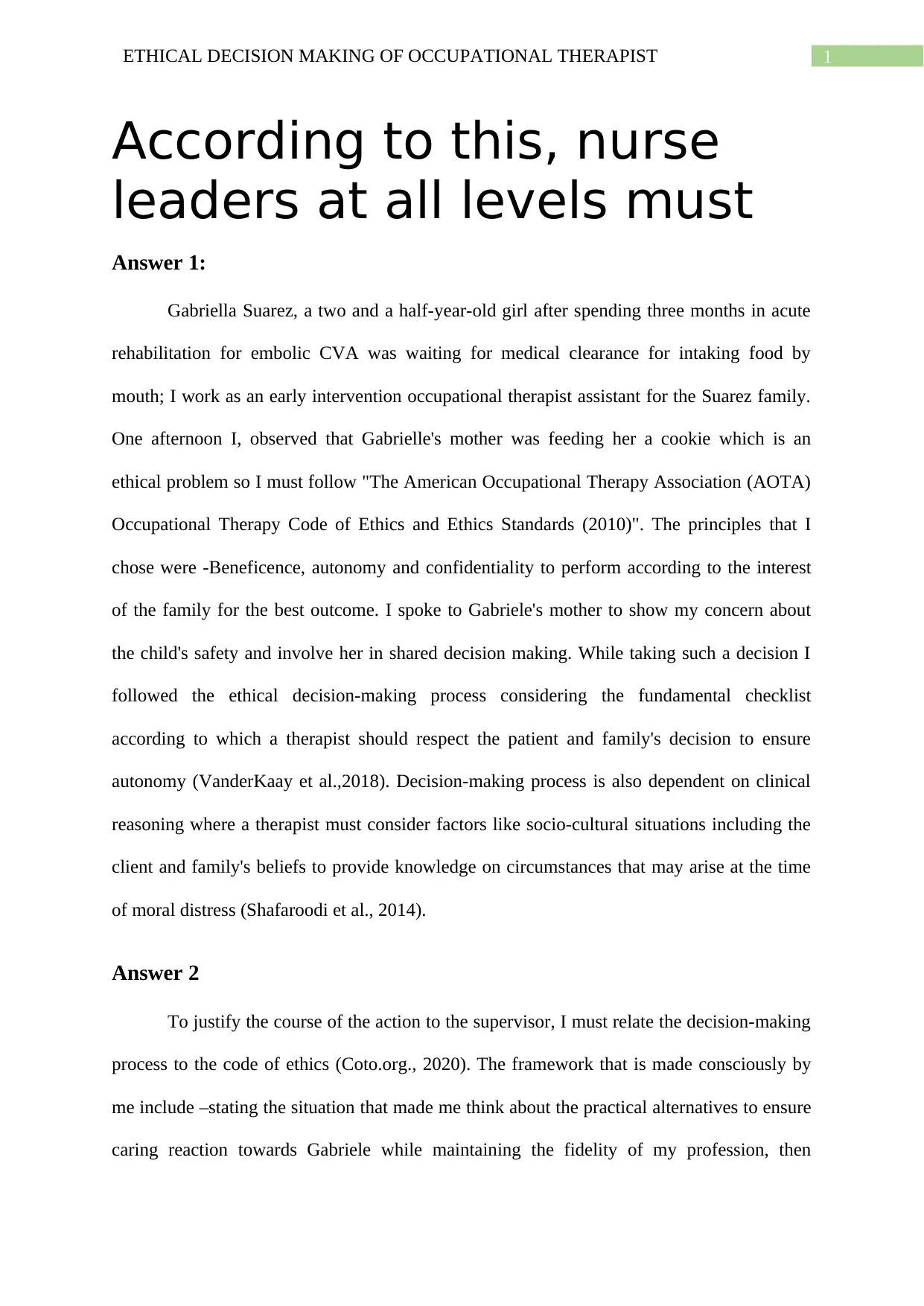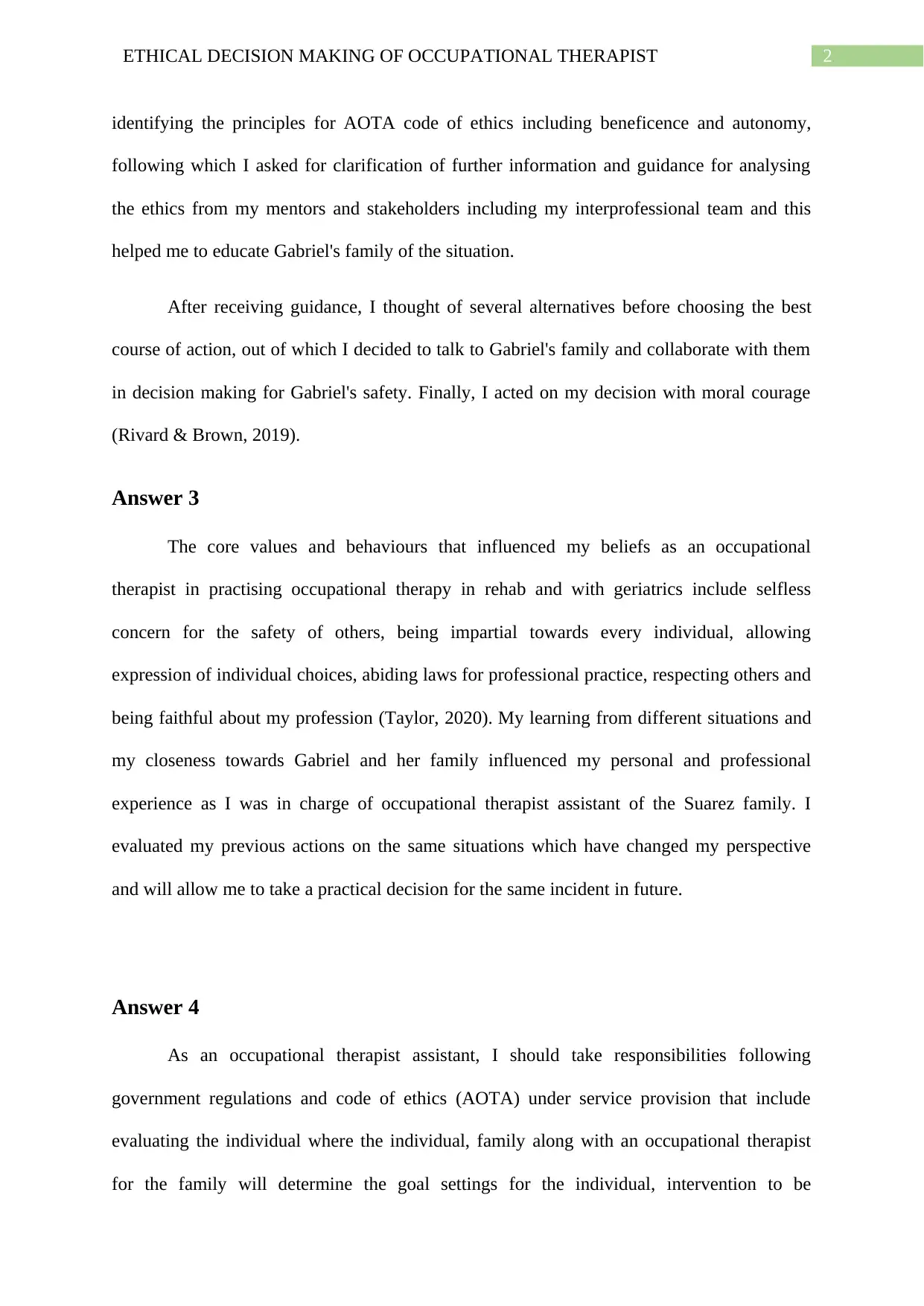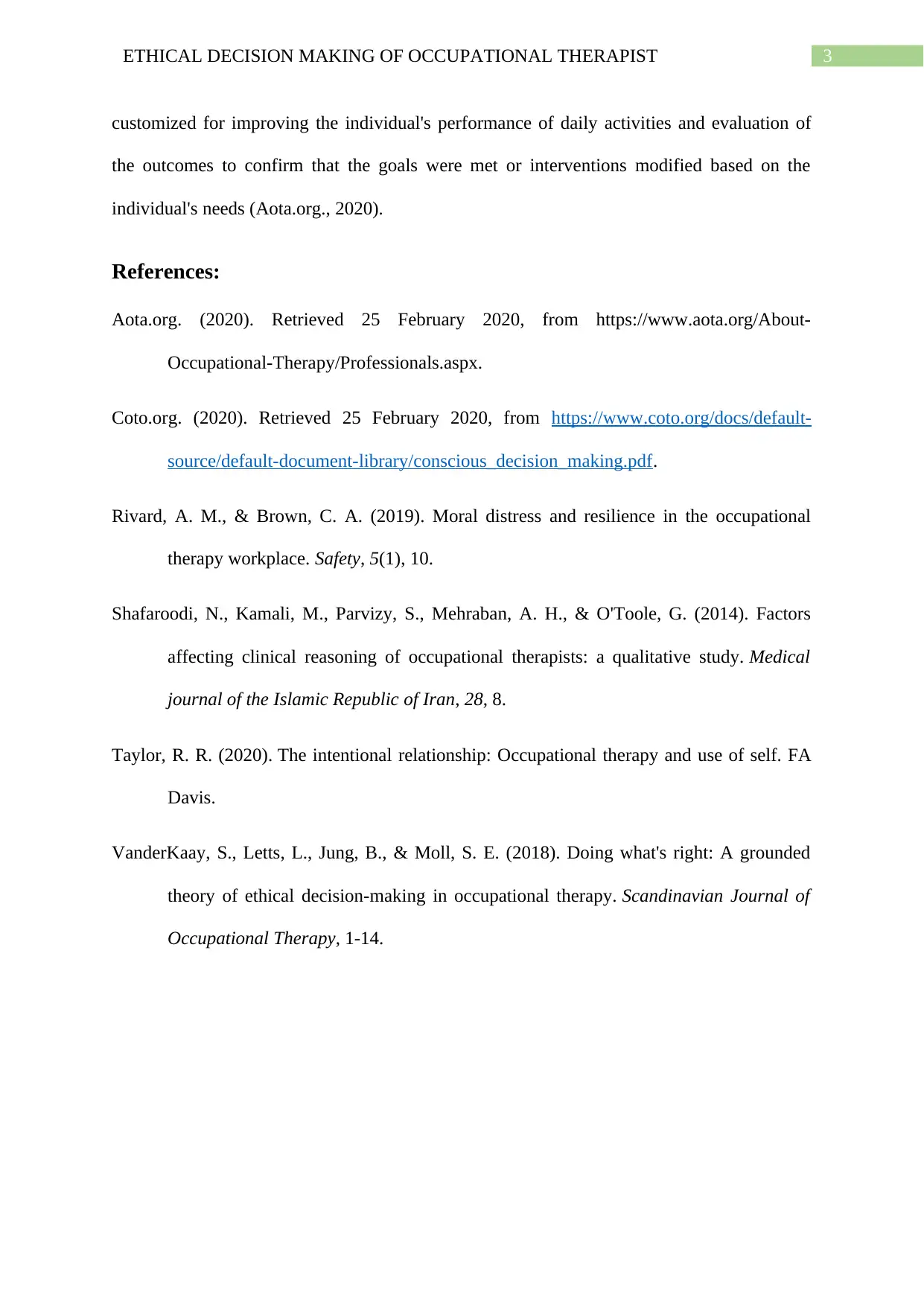Ethical Decision-Making in Occupational Therapy: A Detailed Analysis
VerifiedAdded on 2022/08/11
|4
|849
|28
Homework Assignment
AI Summary
This assignment examines the ethical decision-making process of an occupational therapist assistant, focusing on a case involving a child with an embolic CVA. The student details the ethical dilemma of observing a mother feeding a child a cookie before medical clearance for oral intake, and the subsequent application of the AOTA Code of Ethics, particularly the principles of beneficence, autonomy, and confidentiality. The student describes the decision-making process, including consultation with the family and interprofessional team, and the importance of clinical reasoning, considering socio-cultural factors. The assignment highlights the core values influencing the therapist's beliefs, personal and professional learning from the situation, and the responsibilities of an occupational therapist assistant under service provision. References to relevant literature, including the AOTA website and research on ethical decision-making, are included to support the analysis.
1 out of 4










![[object Object]](/_next/static/media/star-bottom.7253800d.svg)